As medaptus celebrates its 20th anniversary and looks back at our evolution over time, we thought it would be interesting to hear from some of our employees that have been here the longest. Two of our developers, Tim McCoy and Mark Brown, have actually been with the company the full twenty years! Tim and Mark both work out of the medaptus Raleigh, NC office. Both happen to also be native upstate New Yorkers originally (Tim from Rochester, Mark from Rome).
Fate brought the two young men together when they were working for a consulting firm, Questra, and were given the opportunity to build medaptus’ first mobile health applications for PocketPC personal digital assistants (PDA). Tim, who happened to have a lot of experience writing for the PocketPC platform, connected with the early founders of the company, who both happened to be medical residents in their 20s that had just received a round of funding. Before he knew it, Tim was living in a corporate apartment in Boston’s North End.
It wasn’t long before Mark joined onto the project and Tim convinced the executive team to open an office in Raleigh. “I told them I didn’t move from Rochester to North Carolina only to end up back north again.”
Since the year 2000 when Tim and Mark helped medaptus build and release its v1 software for office-based charge capture, multiple computing platforms have come and gone – at some point in time, the company has supported software on early Palm devices, Windows Mobile, BlackBerry devices, the iOS system and the Android OS as well. The transformation of mobile computing in terms of sophistication and acceptance is something that both agree has changed their jobs significantly from the early days.
The emergence of ubiquitous Wi Fi was also high on the list as a true change agent. Mark describes all of the challenges that mobile computing for charge capture in a ’disconnected’ environment created in the early 2000s, “The CPT and ICD code libraries and all of the coding rules AND patient lists needed to be downloaded onto the device usually via a cradle connected to a wired Internet line before the doctor started seeing patients. So there were many storage and security considerations. And then there needed to be a mechanism to send the data off of the device and download new data. These were all critical success factors for our adoption and then within a matter of years, total non-issues.”
Thanks Tim and Mark for 20 years of hard work and development know how!
Get the latest updates and news delivered to your inbox.
Subscribe to our newsletter today.





